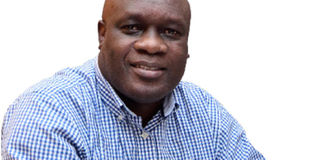When journalists and academics walk together

Odoobo C. Bichachi
What you need to know:
- For Media gets good content, researchers get big audiences for their findings, and the people – including those that reign in their name – are better informed!
Early this week, I had coffee with my Danish journalist friend, Vibeke Quaade, who was in town. Vibeke is involved in, among other things, a programme that brings together researchers (academics) and journalists so as to leverage the best of both worlds. One of the anecdotes she shared was about a workshop in which researchers expressed frustration at the “level” of journalists; that they are “so low” (rather so basic) in the information they gather and disseminate. The journalists on the other hand were equally frustrated with the academics; they thought they are so “high up” and lofty that only they [academics] know what they are talking about!
That intercourse aptly summarises – at least from a general perspective – what the two worlds represent. Journalists are generally “jacks of all trade and masters of none” while academics are hugely knowledgeable in their little boxes of study and largely ignorant outside their specialised boxes. There is therefore great opportunity in bringing the two worlds together for the benefit of “the people” that they both claim to work for, and who often hardly understand what the academics are talking about, or make sense of the often convoluted reporting of journalists based on sound bites. The importance of this synergy was well noted by Marius Dragomir and Robert Nemeth of Central European University’s Democracy Institute in their June 2020 article titled, “What Happens When Academia and Media Work Together”.
They wrote: “When journalists team up with university researchers, only good things can come of it. With scale and structure, this type of collaboration can solve many, if not all, of the woes both journalism and academia are faced with.”
They were not just writing from a theoretical perspective, they were driving a programme that was doing exactly that.
“As our modest journalism experiments are showing, joint work between academia and journalism is incredibly powerful, helping academics reach audiences they would never dream of reaching and journalists improve and increase their output, all with a more efficient use of resources. Undoubtedly, there are snags. Deadline means a totally different thing for academics and journalists. Their work ethics differ. They write differently. They think differently about their audience.” Let’s now turn home. How much collaboration is there between media houses and academic institutions or between individual researchers and individual journalists beyond the press release story and cocktail at the launch of research reports? Very little, if any!
I have had the privilege to attend launches of some of the best research reports on critical issues in Uganda and done by some of the country’s top researchers in different fields. I shall mention only three, funded by the Friedrich Ebert Stiftung (FES):
•“Functionality and Effectiveness of SACCOS in Reducing Poverty and Vulnerability in Uganda: A Case Study of Informal Traders and Transporters in Greater Kampala (2022).”
•“Between regulation and informality: The inner workings of Boda Boda Associations in Greater Kampala (2022).”
•“Great expectations: Why Ugandans leave their villages and how they settle in Greater Kampala (2021).”
These reports could contain solutions to some of the intractable problems the citizens and country faces, yet they hardly received anything beyond a mention in the news bulletin, or a photo in the daily newspaper. The researchers are happy that they now understand the problems better, journalists are busy writing about these problems from a position of limited knowledge, ordinary citizens that live through these problems are unhappy and ignorant of possible solutions, and the authorities (read politicians) are oblivious of the problems and the proposed solutions. It is all because communication and innovation have not worked together!
Researchers and those funding research may therefore wish to start working out a collaboration with journalists from the beginning of the research project and not at the end as they launch the findings. Journalists will feel part of the study and will have better insights (and motivation) to do a series of articles on the findings. They will also sound more intelligent when reporting the launch! Journalists on the other hand need to embrace researchers as sources with deep insights, rather than view them as aloof or studious fellows better left in their own world of “Luzungu”. When the two work together, it is a win-win-win! Media gets good content, researchers get big audiences for their findings, and the people – including those that reign in their name – are better informed!
Send your feedback/complaints to [email protected] or
call/text on +256 776 500725.



